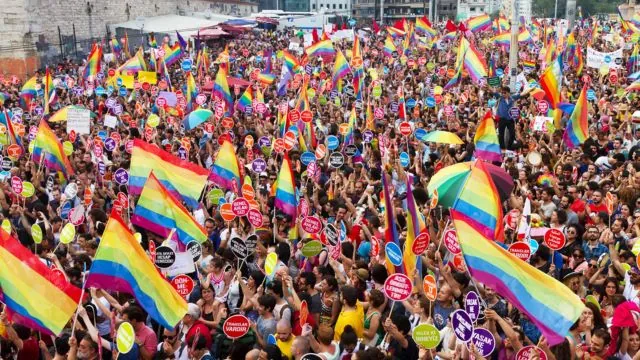Georgia, situated in the southeastern region of the United States, boasts a rich history, diverse culture, and natural beauty. This article delves into the LGBTQ-friendliness of the state, exploring its legal, social, and political landscape, and offering tips and resources for those considering living or traveling in the Peach State.
Legal Landscape of LGBTQ Rights in Georgia
Despite the absence of statewide legislation protecting LGBTQ individuals from discrimination, harassment, or violence, some cities and counties have implemented local ordinances. Notably, Atlanta, the state’s capital, enforces a comprehensive human rights ordinance prohibiting discrimination based on sexual orientation and gender identity. Other municipalities, including Athens, Avondale Estates, Clarkston, and Savannah, also provide varying degrees of protection. Additionally, federal laws, such as the legalization of same-sex marriage in 2015 and the 2020 Bostock v. Clayton County decision, contribute to safeguarding LGBTQ rights in the workplace.
Social Attitudes and LGBTQ Acceptance in Georgia
Georgia harbors a vibrant LGBTQ community, particularly in urban areas like Atlanta, which hosts the Southeast’s largest Pride parade. While lacking statewide legal protections, a 2019 Williams Institute report suggests that 4.5% of Georgia’s adults identify as LGBTQ, surpassing the national average. Furthermore, a 2020 poll indicates that 67% of Georgians support laws safeguarding LGBTQ individuals from discrimination, despite some conservative and religious influences. Challenges persist, with opinions divided on issues such as transgender bathroom access and same-sex couple adoption.
Political Climate and Advocacy for LGBTQ Rights
Georgia’s political landscape reflects a mix of progressive and regressive developments. Elected officials like Jon Ossoff and Raphael Warnock, who openly support LGBTQ rights, demonstrate positive strides. However, challenges persist, as seen in the 2018 attempt to pass the Keep Faith in Adoption and Foster Care Act. Activist groups such as Georgia Equality, Lambda Legal, and the Human Rights Campaign actively work to advance LGBTQ rights, challenging discriminatory laws and promoting awareness and education.
Tips and Resources for LGBTQ Individuals in Georgia
For LGBTQ individuals considering Georgia for residence or travel, several tips and resources can enhance their experience:
- Conduct Research: Explore LGBTQ-friendliness in different cities using platforms like Queer in the World.
- Know Your Rights: Familiarize yourself with LGBTQ rights and seek assistance from organizations like Lambda Legal or the National LGBTQ Anti-Violence Hotline (1-800-799-7233) in case of discrimination.
- Connect Locally: Join LGBTQ groups using platforms like Meetup or Facebook, and explore LGBTQ-friendly venues listed on GayCities or Foursquare.
- Embrace the Experience: Enjoy Georgia’s beauty, cultural attractions, and LGBTQ events like Atlanta Pride and Savannah Pride while being true to yourself.
Conclusion
Georgia presents both challenges and opportunities for LGBTQ individuals. While lacking statewide legal protections, local ordinances, federal laws, and a thriving LGBTQ community contribute to a nuanced landscape. With ongoing advocacy efforts and a rich cultural tapestry, Georgia can be an LGBTQ-friendly state, contingent on one’s location and preferences.

